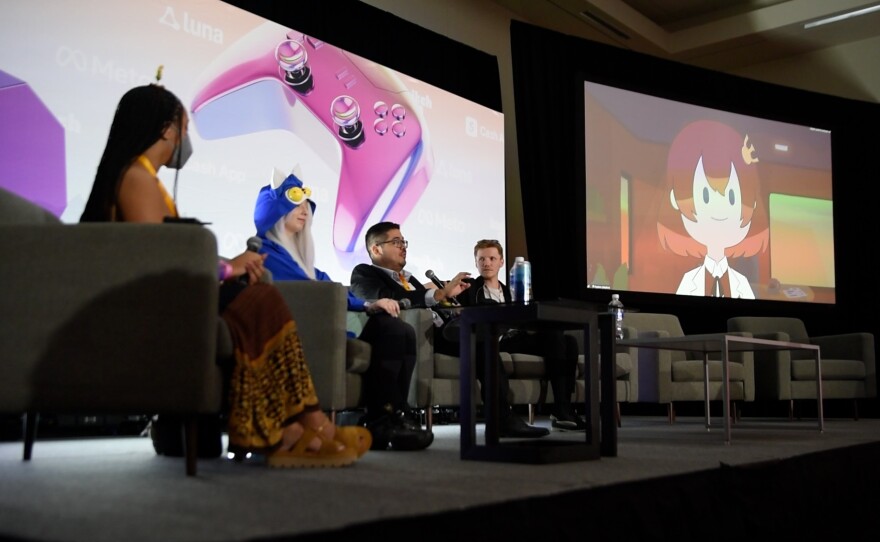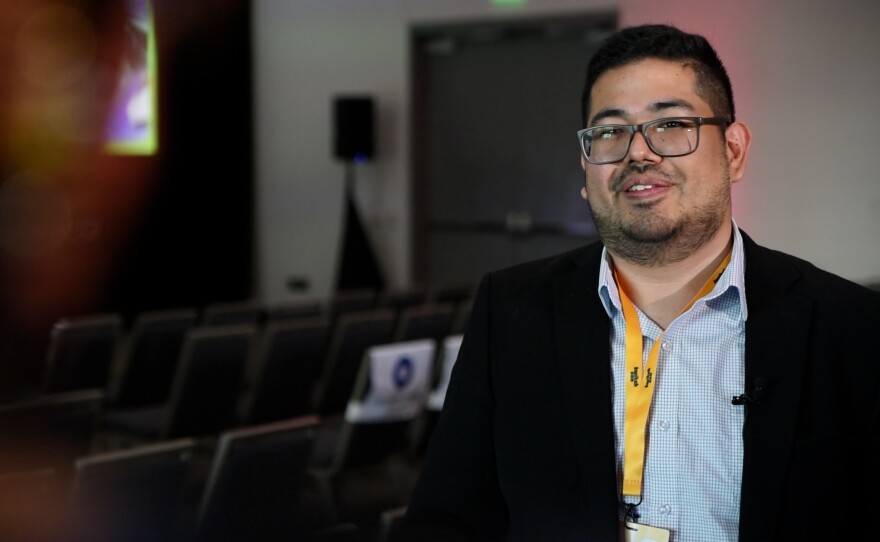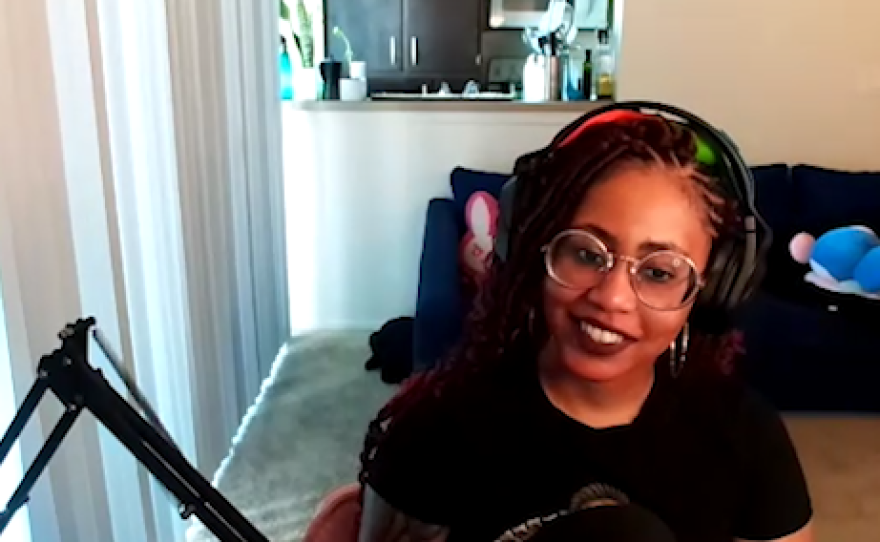Twitch is a live streaming platform that launched in June 2011. Since then, it has become the largest streaming platform in the world, averaging about 31 million daily visitors. There are all kinds of genres to watch, from “Just Chatting” and IRL (in real life) to cooking, gaming and more.
As the platform continues to grow, so does the conversation around mental health and setting boundaries for both the streamers and their viewers.

Parasocial relationships
Maryam Matter, a London-based neuroscience researcher, has written about streamers’ mental health. She said people are spending more time online than ever.
“There was a report from 2024 that stated worldwide, people spend approximately seven hours a day online, which is pretty staggering,” Matter said. “By the time we reach 80 years old, we would have spent about 17 years of our lives online.”
When viewers invest hours watching streamers they don’t actually know, it can lead to parasocial relationships — one-sided emotional bonds people form with media figures or fictional characters. This term was coined in the 1950s to describe these one-way attachments.
At this year's TwitchCon, streamer Emiru said she was assaulted by a fan during a meet and greet. The incident brought new attention to the potential dangers of parasocial relationships.
“I feel like there are damaging elements to being online so much,” Matter said. “People feel they know you, and people feel they can approach you, and people feel they can cross boundaries that they wouldn't normally cross with strangers in the street because they spend so much time watching you online and you give so much of your personality.”
Matter added that not every parasocial relationship is bad if a viewer finds inspiration or representation in a streamer. But viewers should remember that streamers are not their friends.
Dealing with online harassment
Streamers also face hateful messages in their chats. Those who send such messages are often called "keyboard warriors” — people who post comments online that they’d never say in person.

Streamer Psyculturists plays games live while analyzing them through a psychology lens. He said he tries to turn hate comments into teachable moments.
“And all of a sudden they're on the ring and they're like, ‘Well, what do I say?’” Psyculturists said. “It's not to put them on the spot, but it's a learning opportunity for individuals to learn that that is not OK.”
Another streamer, Briggsy, said they don't tolerate any messages that make them uncomfortable.
“I don't think the block button is being used enough,” Briggsy said. “The second some nonsense comes on my feed — block. I don't have time for explanations.”
Taking breaks and reconnecting
With all the hours streamers spend online curating content and engaging with viewers, it’s important to take breaks and reconnect with the world around them.
One study found that spending 20 minutes outside three times a week can reduce cortisol, a primary stress hormone.

Briggsy said even small moments offline can make a difference.
“Even if it's just to take a walk, even if it's to go around the corner to get your favorite candy bar, even if it's just to say hi to your neighbor,” Briggsy said. “You feel 100% better when you come back inside. You're like, ‘You know what? I don't need this computer.’”
Despite the challenges, Psyculturists said Twitch has allowed him to reach people who need mental help resources.
“I've had a lot of viewers come through and message me (saying), ‘Because of your streams, it inspires me to go seek help,'” Psychulturists said. “Now they have the support that they need to actually go through their everyday life.”
Tips for new streamers
With more than 100,000 active live channels on Twitch, the community is increasingly saturated, which can be discouraging for newcomers.
Briggsy advised new streamers to stay true to themselves.
“There's thousands, if not millions, of games out there you could play, and while they're not popular, people are attracted to the person, not the game,” Briggsy said. “Just be yourself. I promise you no one's going to care, and if they do: block. You don't want these people in your community anyway.”
With more users joining every day, discussions about safety on and off stream remain crucial. Matter said everyone navigates online spaces differently — and that's why knowing your limit matters.
“I think it's really important to think about what makes you feel safe, what your boundaries would look like and stick to them,” Matter said. “You have to put yourself first and prioritize your health, whether it's mental or physical. Both are just as important as each other.”





